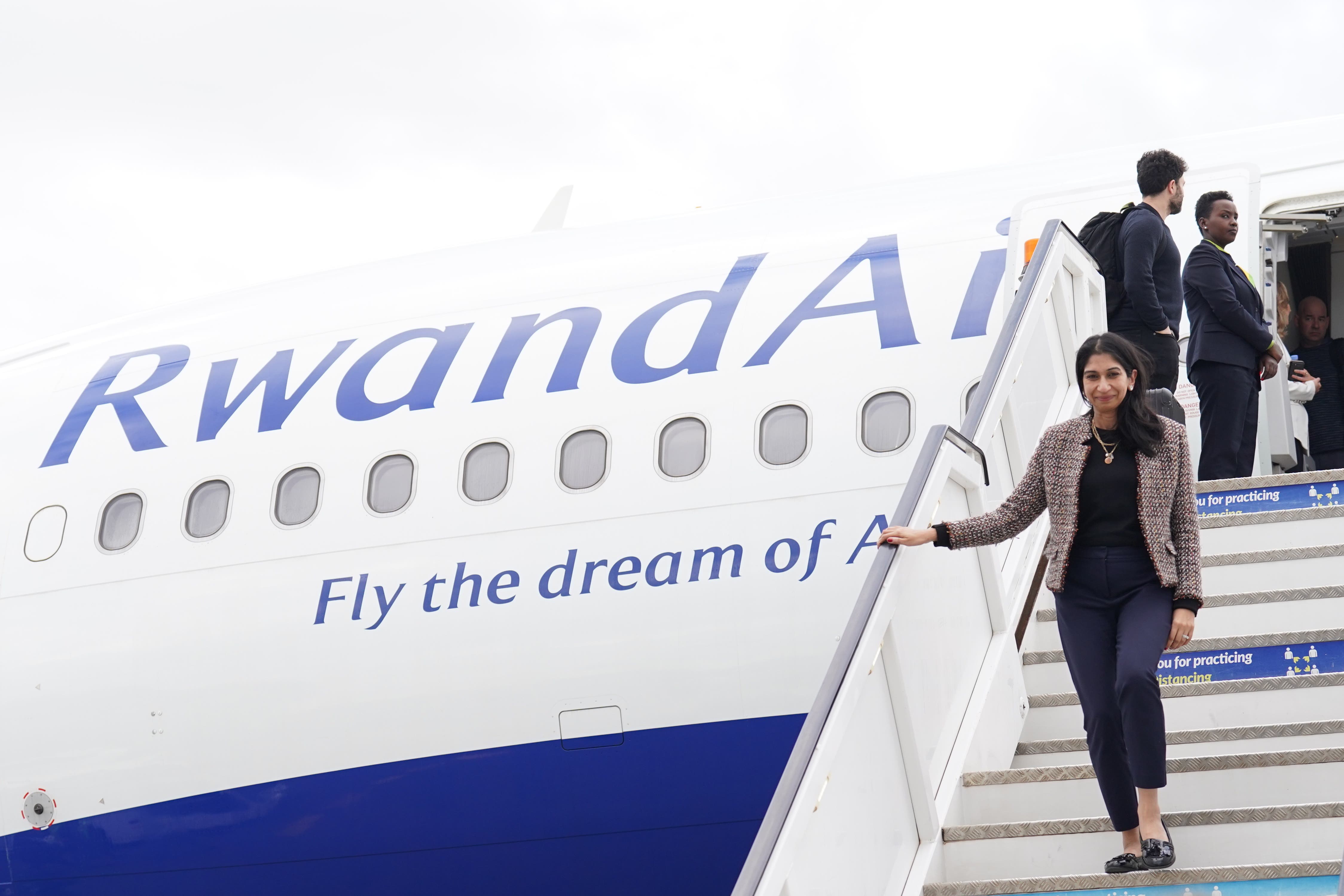What is at stake for the government’s Rwanda plan on Wednesday?
The consequences of the Supreme Court’s final judgment on asylum policy are examined by Archie Mitchell

It is a monumental week for Rishi Sunak and Suella Braverman, who on Wednesday will hear whether their plan to send asylum seekers to Rwanda has been judged to be legal.
The government’s flagship immigration policy, announced last year by Boris Johnson and Priti Patel, has been held up by legal challenges over the question of whether Rwanda represents a “safe third country” for refugees.
The judgment will mark a major moment for the future of Braverman, whose role as home secretary is already under threat, and for the PM’s key pledge to “stop the boats”.
Here we look at what is at stake, and what will happen next.
What is the judgment?
Ten asylum seekers from Syria, Iraq, Iran, Vietnam, Sudan and Albania have challenged the government’s plan on the grounds that Rwanda is not a safe country and that sending asylum seekers there would breach their human rights.
In June, the Court of Appeal ruled that the £140m policy was unlawful under the European Convention on Human Rights. The Home Office appealed the ruling, and Braverman insisted “It’s not over yet.”
On Wednesday at 10am, the Supreme Court will issue a final decision on whether flights to Rwanda can go ahead.
What happens if the government loses?
If the government loses, the Rwanda policy is dead for the time being, and there does not appear to be a plan B. But it would pile intense pressure on Sunak to pull Britain out of the ECHR, a move that would make the country an international outlier alongside Russia and Belarus.
Tories on the right of the party have already called on Sunak to leave the ECHR in order to get a grip on Channel crossings. And allies of Braverman have told The Mail on Sunday that she would pressure Sunak to call a snap “who runs Britain” general election on the issue of control of Britain’s borders.
What happens if the government wins?
If the Home Office wins, it is unclear when the first flights to Rwanda will be able to take off. The policy would still face scrutiny from the European Court of Human Rights in Strasbourg, which blocked an inaugural flight at the 11th hour last June.
Allies of Sunak have suggested he is prepared to ignore future rulings from the ECHR if the government wins in the Supreme Court. There is also scope, depending on the terms of the ruling, for the asylum seekers to lodge individual appeals with the Strasbourg Court, in which case they could be granted injunctions until their cases have been fully considered by the ECHR.
So when could flights take off?
Braverman has said it is “impossible to give a specific timeline” on when deportation flights could begin, should judges give the Rwanda plan the green light. But civil servants have been told to prepare for a possible start date as soon as February.
With her future as home secretary on the line, and having said it is her “dream” to see a Rwanda flight take off, Braverman will want to see the policy put into action as quickly as possible.






Join our commenting forum
Join thought-provoking conversations, follow other Independent readers and see their replies
Comments